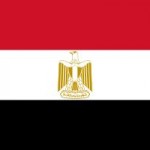BLOG / By Denis J. Sullivan and Kimberly Jones
Egypt is undergoing a major social and political transformation—perhaps even of a revolutionary nature. This process, characterized by mass, popular protests (largely nonviolent) has been cause for much speculation and collective head-scratching by those watching from the sidelines. Hundreds of thousands of Egyptians have taken to the streets in the last several days calling for the resignation of President Hosni Mubarak and his government, dominated by his National Democratic Party. Journalists and regional analysts have raised several excellent questions, for which there are frequently a lack of definitive answers. Here are our own observations.
The “new” government — The reconstitution of President Mubarak’s government is too little too late. Vice President (and former spy chief) Omar Suleiman is an interesting choice because he is palatable to the military (far more so than the once heir apparent son of a Mubarak — Gamal) and offers some Egyptians stability. Egyptians’ real need for stability should not be overlooked in contrast to the perceived need for radical regime change. However, he is a Mubarak appointee, and his human rights record leaves much to be desired.
The Muslim Brotherhood — The MB have largely been on the sidelines, and many have wondered why. Did they miss the revolutionary boat as it left the dock for Tahrir Square, or did they strategically decide to let the protests take their course without their leadership or organizational savvy? Without the Brotherhood at the helm, the Egyptian government (and those who support them) has been prevented from raising the specter of an (other) Islamist government in the region. Key, however, is that the MB is still Egypt’s largest organized opposition movement, and although they have suffered from their own internal divisions, they remain popular and populist in orientation. They may not (by their own choice) dominate a future Egyptian executive, but they could certainly command a significant block in parliament.
The next government — Former presidential contender Ayman Nour and former International Atomic Energy Agency director Mohammed El-Baredei are the oft-mentioned non-Mubarak contenders. Both have positives and negatives, and either would be a gigantic improvement over Mubarak. Nour has not been heard much and he is unlikely to be a contender anymore. El-Baredei has far greater visibility, literally, in the streets of Cairo as well as internationally.
Looters — Egyptians of all classes, all socio-economic walks of life, are on the streets as we write; they are protecting their families and their personal property with whatever “weapons” they have — golf clubs, sticks, pistols. The looters? They are largely seen as government “thugs”; indeed, many reports confirm that many are undercover police, the mukhabaraat.
Human rights — The Egyptian people are being beaten and killed while clamoring to have their rights respected. This uprising should serve as a lesson for those who try to portray human rights as Western and Arabs and Muslims as undemocratic. These rights must be understood within each country’s historical, social, and political context. Key is that there is a connection between security and stability and respect for human rights, and understanding, at the same time that real democracy is not Cup-a-Soup — it’s not a quickly assembled short-list of ingredients but a lengthy and difficult process.
The role of the United States — The U.S. is finally calling out the Mubarak government for what it is — although in much more diplomatic terms than many Egyptians are using. It’s putting its democratic and human rights rhetoric where its foreign assistance reality is — on the table. While in some respects this is also too little too late, it is a welcome shift in policy which is better late than never given our strategic relationship with Egypt and its neighbors.
Egypt’s future — Mubarak’s refusal to abdicate thus far is not terribly surprising but also worrying, and it is difficult to imagine the maintenance of his much weakened presidency into the future. Notably, the longer he stays in power the more unstable the state becomes, which worries some neighbors and allies. Key, however, is that Egypt’s stability has been a well-crafted illusion maintained through an authoritarian and repressive executive and hegemonic party politics. Pulling down the curtain on this decades-long effort can bode well for both internal Egyptian politics and regional relations, eventually resulting in a truly democratic Egypt that is genuinely stable.
The Muslim Brotherhood is not the Islamist boogeyman that some have made it out to be. They are a pragmatic, socio-political movement, albeit one with an Islamist agenda. The organization is very unlikely to make a radical play for power, and further destabilize the situation, but it should remain a key actor in Egyptian politics in the near-term.
At the end of the day (or the revolution), Egypt’s future lies in the hands of ordinary Egyptians. This is the first time in a very long time that Egyptians have not only had a voice, but made their voices heard. It is up to the world, and more importantly, the government of Egypt to listen.






